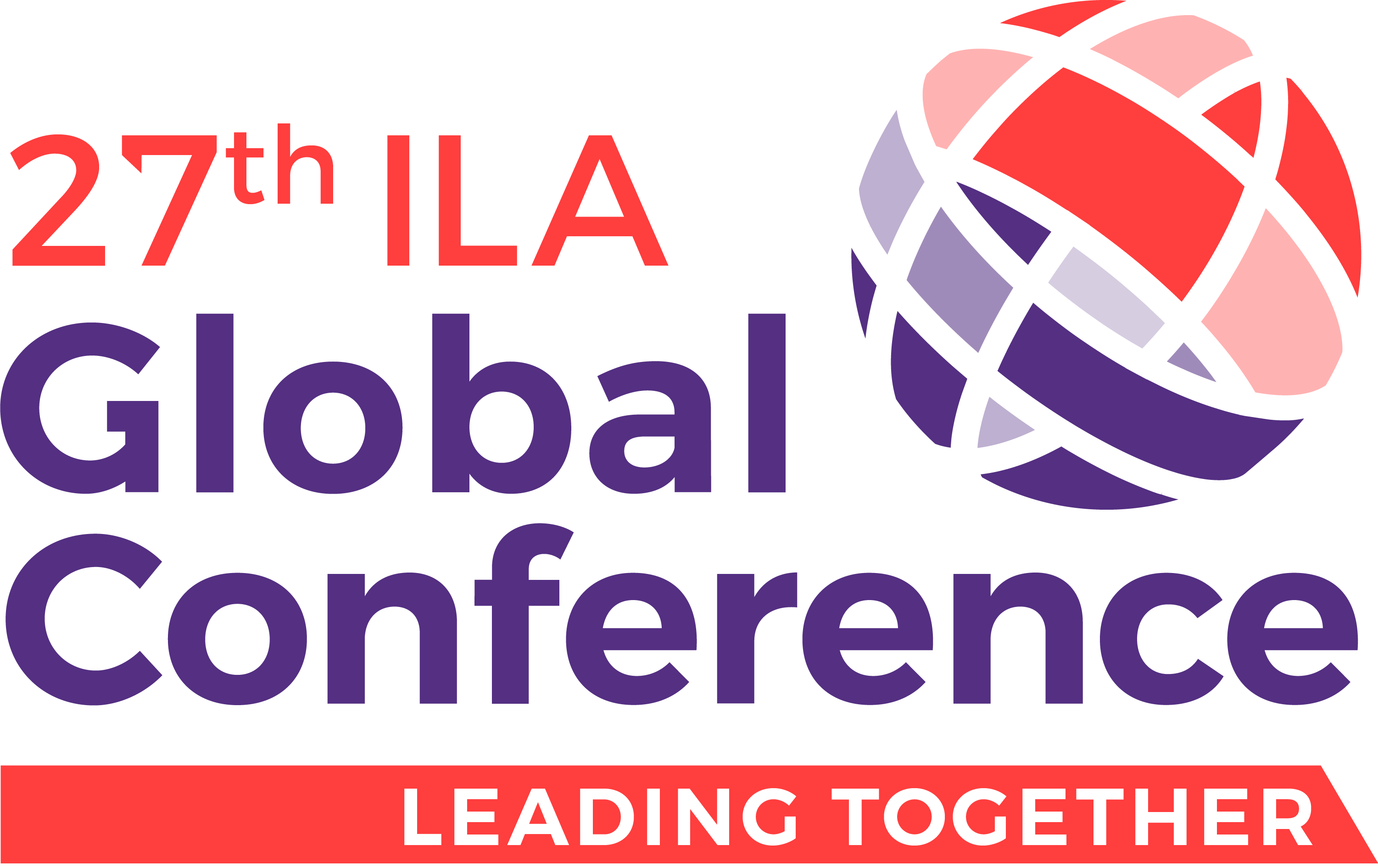Plenaries
Thursday Plenary
The Czech Leadership Paradigm: Havel's Vision and Kafka's Truth for Today's Global Transformation
10:30 AM – 11:45 AM | Congress Hall 1-3
From the peaceful power of the Velvet Revolution to the profound insights of Kafka and Havel, Czechia offers a unique leadership legacy that speaks directly to our turbulent times. Join Leah Tomkins, whose groundbreaking work on Kafka reveals surprising truths about authentic leadership, and Tomáš Sedláček, the brilliant economist who shaped policy alongside President Havel himself, for an extraordinary exploration of Czech-inspired wisdom. This powerful conversation uncovers how the philosophical depth of Czech thought—balancing idealism with pragmatism, truth with compassion, and individual dignity with collective responsibility—provides a vital blueprint for navigating today’s global disruptions. Drawing from lived experience and scholarly insight, our speakers illuminate how the Czech approach to transformation—confronting absurdity, embracing moral courage, and pursuing “living in truth”—offers practical guidance for leaders facing seemingly insurmountable challenges. Discover how these timeless principles can help us move beyond polarization toward meaningful change in our organizations, communities, and world.

Tomáš Sedláček became famous as the author of Economics of Good and Evil: The Quest for Economic Meaning from Gilgamesh to Wall Street (Oxford University Press, 2011); taking a philosophical approach to economics, the book has been translated into 22 languages, became a bestseller in many countries and earned numerous international awards.
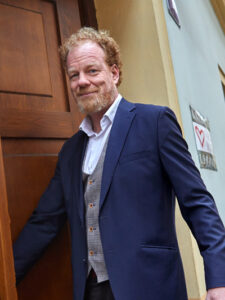
Tomáš Sedláček, PhD. (1977) became famous as the author of Economics of Good and Evil: The Quest for Economic Meaning from Gilgamesh to Wall Street (Oxford University Press, 2011); taking a philosophical approach to economics, the book has been translated into 22 languages, became a bestseller in many countries and earned numerous international awards. In the years 2001–2003 he served as an economic advisor in the office of President Václav Havel. From 2003–2006 he was an advisor to the Czech minister of finance and deputy prime minister. He also became a founding member of the Czech government’s National Economic Council. For 16 years he was the chief macroeconomic strategist of the bank Československá obchodní banka. Together with Milan Kundera, he was the only living Czech among the GDI’s Top 100 Thought Leaders. He was a member of the World Economic Forum in Davos, where he also lectured, and was on the advisory team of the president of the European Commission, José Manuel Barroso. He has drawn on these experiences in his lecturing activities at home and abroad, including cooperation with prestigious universities such as Harvard, Yale and Georgetown. He is a regular commentator on social, political and economic events.
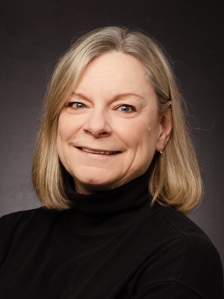
Leah Tomkins is a writer, scholar and independent leadership consultant, with Professorial affiliations with Oxford University, Cranfield University and the University of the West of England. She is the author of Franz Kafka and the Truths of Leadership, which highlights Kafka’s extraordinary relevance for the dynamics of leadership today.

Leah Tomkins is a writer, scholar and independent leadership consultant, with Professorial affiliations with Oxford University, Cranfield University and the University of the West of England. A linguist by background, her work interweaves leadership with the humanities, arguing that many of the issues that exercise contemporary leadership commentators can be traced in literature and philosophy. She operates at the interface of academia and practice, drawing on her leadership roles at Accenture, KPMG, the UK Cabinet Office, the UK Foreign Office, and London’s Metropolitan Police Service. The publication of her latest book, Franz Kafka and the Truths of Leadership (Edward Elgar Publications), marks the centenary of the death of Franz Kafka, Prague’s most famous son. The book highlights Kafka’s extraordinary relevance for the dynamics of leadership today, with key lessons for the ethics of our political, corporate and interpersonal relations.
Friday Plenary
The Frontlines of European Leadership: Navigating Global Challenges in an Era of Transformation
10:30 AM – 11:45 AM | Congress Hall 1-3
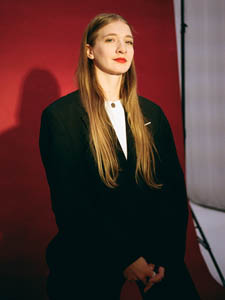
Bára Stárek is the executive director of Díky, že můžem, Thanks to You We Can, which she transformed from a student association into a nationwide platform with 16 projects focused on educating and activating young people in the areas of freedom, democracy and human rights. She was the only Czech person selected for the prestigious Obama Foundation Leaders program 2024-2025 and in 2025, she was part of Forbes 30 under 30. Bára has been raising awareness about young people for a long time and trying to dispel myths about them in the public space.

Bára Stárek is the executive director of Díky, že můžem, Thanks to You We Can, which she transformed from a student association into a nationwide platform with 16 projects focused on educating and activating young people in the areas of freedom, democracy and human rights. Her organization reaches millions of people in the Czech Republic with its activities every year – through projects such as Korzo Národní, the largest celebration of November 17 in the Czech Republic. Through the Academy and Educational platforms, which reaches more than forty thousand students in schools, it also brings topics that the curriculum often fails to address – from modern history to current social challenges, from disinformation to climate change or through marketing activities such as Thanks That We Can Vote, which helped to bring for the first time in the history of Czech Republic more youth voters to vote than the average population in 2024. She was the only Czech person selected for the prestigious Obama Foundation Leaders program 2024-2025 and in 2025, she was part of Forbes 30 under 30. Bára has been raising awareness about young people for a long time and trying to dispel myths about them in the public space.
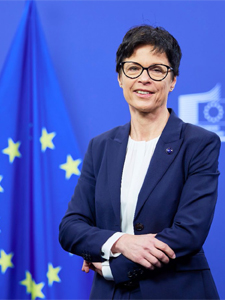
Marta Kos is the European Union Commissioner for Enlargement. She drives the EU’s enlargement process forward and develops the EU’s relations with countries in the region, including in the Western Balkans, Ukraine and Moldova. She has extensive diplomatic and leadership experience having previously served as Slovenia’s ambassador to Switzerland, Germany, and Latvia. Previously, she served as Vice-President for International Relations, Chamber of Commerce and Industry of Slovenia and was the Director, Co-Owner and Business Coach of Gustav Käser Training International. Learn more.
Saturday Plenary
Human Wisdom in the Age of Artificial Intelligence: Navigating the New Leadership Frontier
12:15 PM – 1:45 PM | Congress Hall 1-3
As AI reshapes our world at unprecedented speed, what does truly visionary leadership look like at this critical intersection of human and machine intelligence? This thought-provoking session brings together two exceptional perspectives: renowned philosopher and sociologist Professor Renata Salecl, whose pioneering work examines the ideology of choice and the passion for ignorance in today’s society, and Barbora Paulovič Deckerová, whose leadership at Microsoft’s Global Partners Solutions places her at the forefront of AI implementation across diverse markets and cultures. Together, they explore the delicate balance between innovation and responsibility—addressing how leaders can harness AI’s transformative potential while mitigating risks of misinformation, social polarization, and ethical drift. This timely conversation moves beyond theoretical concerns to offer practical frameworks for developing AI governance that preserves human values, fosters genuine connection, and transforms potential threats into opportunities for positive change. Join us for an essential dialogue on leading with wisdom in an era where technology and humanity are more intertwined than ever before.
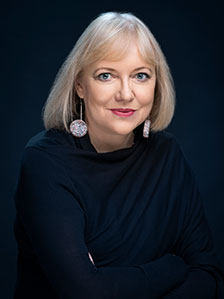
Renata Salecl is a philosopher, sociologist and legal theorist. She is a Senior Researcher at the Institute of Criminology at the Faculty of Law in Ljubljana, Slovenia, and a Professor at the School of Law, Birkbeck College, University of London.

Renata Salecl is a philosopher, sociologist and legal theorist. She is a Senior Researcher at the Institute of Criminology at the Faculty of Law in Ljubljana, Slovenia, and a Professor at the School of Law, Birkbeck College, University of London. Her books, which have been translated into 20 languages, include A Passion for Ignorance: What We Choose not to Know and Why (Princeton UP, 2020), Tyranny of Choice (Profile Books, 2011), On Anxiety (Routledge, 2004), and (Per)versions of Love and Hate (Verso, 1998). Renata’s work has been presented at TED Global. In addition to her scholarly work, she has published catalogue essays on artists Francis Bacon, Jenny Holzer, Anthony Gormley and Sarah Sze. She is also active in the civil initiative “Airspace tribunal,” which is engaged in the initiative to propose a new human right to protect the freedom to live without physical or psychological threats from above. Renata has been a keynote speaker at numerous scientific and public events and has also given talks at international politics and management events. Currently, Renata is working on the question of apathy, burnout and disaffection in today’s society.

Barbora Paulovič Deckerová is President for Central Europe and Central Asia at Microsoft where she leads sales and operations across 16 countries. She collaborates closely with governments, enterprises, and the broader tech ecosystem to drive inclusive digital transformation, promoting responsible AI, and ensuring innovation aligns with local priorities and regulatory framework.
 Barbora Paulovič Deckerová leads Microsoft’s operations across 16 countries in Central Europe and Central Asia regions. With over two decades of leadership experience at Microsoft and IBM, she has driven large-scale digital transformation, AI adoption, and strategic partnerships across diverse markets. A former NCAA Division and professional basketball player, Barbora brings a leadership style rooted in resilience, collaboration, and continuous learning. She holds degrees in Psychology and an MBA in Transformational Management and is a recognized advocate for women in technology and inclusive innovation.
Barbora Paulovič Deckerová leads Microsoft’s operations across 16 countries in Central Europe and Central Asia regions. With over two decades of leadership experience at Microsoft and IBM, she has driven large-scale digital transformation, AI adoption, and strategic partnerships across diverse markets. A former NCAA Division and professional basketball player, Barbora brings a leadership style rooted in resilience, collaboration, and continuous learning. She holds degrees in Psychology and an MBA in Transformational Management and is a recognized advocate for women in technology and inclusive innovation.